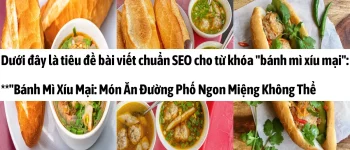
Have you ever looked at a seemingly innocent bowl of waxy lumps and wondered what they truly are? Well, prepare to be shocked. Those seemingly harmless lumps are, in fact, pieces of crack cocaine freshly “cooked” in a microwave. Their estimated street value? A staggering £200,000!
A Crack Cocaine Empire Unveiled
In a groundbreaking operation last year, detectives stumbled upon a hidden drugs factory in Peter Wilson’s ground-floor flat in Brockley, southeast London. They caught Wilson red-handed as he meticulously prepared around two kilos of the highly addictive drug. Today, Wilson finds himself beginning a 14-year sentence after pleading guilty to drugs and money laundering charges at Croydon Crown Court. And he’s not alone – six other members of his gang are already behind bars, serving a combined total of 26 years.

A Global Operation with Far-Reaching Consequences
This remarkable conviction came after an extensive six-month surveillance operation, spanning Jamaica, New York, and Miami. Wilson utilized a network of associates and couriers to distribute crack cocaine to street dealers across London and southern England, with a particular focus on Bristol. Surprisingly, detectives discovered traces of crack in three different microwaves. Two of these microwaves were found in the kitchens of women Wilson had befriended, while the third was discovered in a hair salon operated by his partner, Lisa Murray.
Going Beyond Drug Trafficking
In a unique move, the Metropolitan Police not only targeted the drug trafficking aspect of this operation but also engaged the expertise of a specialist forensic accountant to pursue Wilson and his associates for money laundering. This expert in fraud and criminal transactions discovered that Wilson, Murray, and another woman named Beverley Tracey were living extravagant lifestyles that couldn’t be adequately accounted for through legitimate means.

The Untold Story of Wilson’s Associates
Murray, a resident of Lewisham, was sentenced to three years in prison after admitting to her involvement in money laundering. As for Tracey, a seasoned customer services employee at NatWest Bank, she received a two-year community rehabilitation order for assisting in retaining the proceeds of drug trafficking. An astonishing £122,000 in cash, neatly stashed away in a safety deposit box at the Greenwich branch where she worked, confirmed her participation in this illicit scheme.
The Kitchen Crack Factories
Remarkably, this group operated under the radar, avoiding the typical crackhouses associated with drug trafficking. Instead, they turned ordinary suburban kitchens into their secret crack production hubs. By strategically evading ostentatious displays of wealth, such as flashy cars, they succeeded in maintaining a low profile. It was only when they returned to Jamaica that they reveled in a luxurious lifestyle, a stark contrast to their discreet operations in London.
Shutting Down the Network
Determined not only to detect crime but also to deny criminals any profits, the Serious Crime Group South led by Detective Inspector Gary Townsend successfully dismantled this major crack cocaine supply network. By presenting irrefutable evidence of the lavish lifestyles and material assets enjoyed by the main players, they ensured that crime indeed did not pay. Confiscating assets worth £200,000 from the gang was just the beginning. A confiscation hearing is scheduled for the New Year, where police will seek to seize the assets acquired through drug dealing.

An Intricate Web of Money Laundering
Wilson’s shady business ventures extended far beyond drug trafficking. As the owner of PW Motors in Kingston, Jamaica, he imported vehicle parts from the UK, allegedly using the business as a facade for money laundering. Notorious for evading taxes in Britain, Wilson, along with Murray, owned two houses in London, despite residing in a council flat. They even managed to purchase a luxurious £90,000 flat in an affluent Kingston suburb. As a final touch, Wilson exported a sleek Lotus car from the UK to Jamaica.
The Unexpected Kingpin
In a trade known for its violence and firearms, Wilson stood out. He operated without resorting to violence and remarkably abstained from owning a gun. Nonetheless, he held significant influence in Jamaica, where he went by the nickname “Peanut”. As for the eighth member of the gang, Racquel Alexander, she was arrested by the police but managed to evade custody shortly before the court case began in June. Law enforcement is still actively pursuing her.
As this astonishing story comes to a close, we can breathe a sigh of relief knowing that a major crack cocaine supply chain has been terminated. Thanks to the unwavering determination of the Metropolitan Police, crime was not allowed to flourish. From humble suburban kitchens to luxurious lifestyles in Jamaica, this tale reminds us that justice will ultimately prevail.
For similar stories and more engaging content, visit Ekilove.



